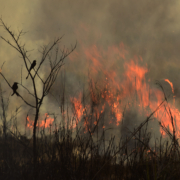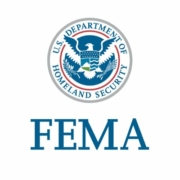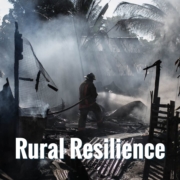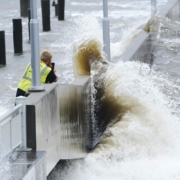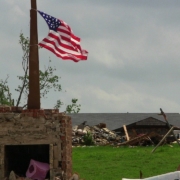The National Weather Service confirmed more than 60 tornadoes hit the South and Midwest on Friday and Saturday, March 31 – April 1. The most affected states were Alabama, Arkansas, Illinois, Indiana, Mississippi, and Tennessee. Most of these governors have announced emergency or disaster declarations for their state. As of Monday morning, there are at least 32 deaths and many more people injured from the tornadoes. Hundreds of homes and businesses were destroyed and have to be rebuilt.
HAC offers the following resources with information for nonprofits dealing with loss and damage from tornadoes: Rural Resilience in the Face of Disaster site and Disaster Response for Rural Communities Guide.
If you are in need of emergency, transient housing, you can text SHELTER and your Zip Code to 43362 (4FEMA) to find where the shelter closest to you is located.
TIPS
Disaster Assistance Improvement Program (DAIP)
Individuals and business owners who sustained losses in the designated area can begin applying for assistance by registering online at http://www.DisasterAssistance.gov or by calling 1-800-621- 3362 or 1-800- 462-7585 TTY. The toll-free telephone numbers will operate from 7:00 a.m. to 10:00 p.m. seven days a week until further notice.
If your home has experienced damage, remember to the check the outside of your home before you enter. Look for loose power lines, broken or damaged gas lines, foundations cracks, missing support beams, or other damage. It may be safest to ask a building inspector of contractor to check the structure before you enter. Do not force jammed doors open, as they may be providing needed support to the rest of the home. Sniff for gas to ensure there are no natural or propane gas leaks. If you do have a propane tank system, make sure to turn off all valves and contact a propane supplier to check the system before you use it again. Check floors and ceilings to ensure they are not sagging from water damage; this can be especially hazardous. Take photographs of any damage as you may need them for insurance claims or FEMA claims later.
Federal Emergency Management Agency (FEMA)
To apply to disaster assistance funding, you must complete a multi-purpose application over the phone on FEMA’s toll-free national tele registration or online.
Toll-free helpline:
1-800-621-FEMA (3362)
For hearing impaired callers only:
1-800-462-7585 (TTY)
1-800-621-3362 (Video Relay Service)
For more information on federal aid programs visit FEMA’s website. Aid may include rental payments, home repair, unemployment payments, loans, and other assistance.
American Red Cross Disaster Service
For referrals and updates on Red Cross shelter services in your area, locate a local Red Cross office through: https://www.redcross.org/get-help.html or by calling the Public Inquiry Center at 1-800-214-0441. If an emergency has forced you to evacuate your home, the Red Cross has a list of Open Shelters on its website.
State and Local Housing Agencies
Each state has at least one agency that administers state and federal programs to promote decent affordable housing for low-income individuals. Typically, these agencies and authorities administer some aspects of state or federal programs. Below is a list of relevant organizations in states impacted by the tornadoes.
Alabama
Alabama Housing Finance Authority
7460 Halcyon Pointe Drive, Suite 200
Montgomery, AL 36117
(334) 244-9200
http://www.ahfa.com/
Arkansas
Arkansas Development Finance Authority
P.O. Box 8023
Little Rock, AR 72203-8023
(501) 682-5900
http://www.arkansas.gov/adfa
Illinois
Illinois Housing Development Authority
111 E Wacker Drive, Suite 1000
Chicago, IL 60601
(312) 836-5200
http://www.ihda.org
Indiana
Indiana Housing and Community Development Authority
30 South Meridian Street
Suite 900
Indianapolis IN – 46204
(800) 872-0371 (Inside Indiana Only)
(317) 232-7777
https://www.in.gov/ihcda/home/
Mississippi
Mississippi Home Corporation
735 Riverside Drive
Jackson, MS 39202-1166
Phone: (601) 718-4642
Fax: (601) 718-4643
http://www.mshomecorp.com
Tennessee
Tennessee Housing Development Agency
502 Deaderick Street, Third Floor
Nashville, TN 37243
Phone: (615) 815-2200
Fax: (615) 564-2700
https://www.thda.org
Federal Emergency Management Agency Regional Offices
REGION IV
(serves Alabama, Florida, Georgia, Kentucky, Mississippi, North Carolina, South Carolina, Tennessee)
(770) 220-5200
www.fema.gov/region-iv-al-fl-ga-ky-ms-nc-sc-tn
REGION V
(serves Illinois, Indiana, Michigan, Minnesota, Ohio, and Wisconsin)
(312) 408-4427
https://www.fema.gov/about/organization/region-5
REGION VI
(serves Arkansas, Louisiana, New Mexico, Oklahoma, and Texas)
(940) 898-5399
https://www.fema.gov/about/organization/region-6
Department of Housing and Urban Development State Field Offices
Alabama
417 20th Street North,Suite 700
Birmingham, AL 35203
(205) 731 2617
Director Kenneth E. Free
https://www.hud.gov/states/alabama/offices
Arkansas
425 West Capitol Avenue, Suite 1000
Little Rock, AR 72201-3488
(501) 918-5700
Director: Wanda C. Merritt
https://www.hud.gov/states/arkansas/offices
Illinois
Ralph Metcalfe Federal Building
77 West Jackson Boulevard
Chicago, IL 60604-3507
(312) 353-6236
Director: Kimberly Danna
https://www.hud.gov/states/illinois/offices
Indiana
Minton Capehart Federal Building
575 North Pennsylvania Street, Suite 655
Indianapolis, IN 46204
(317) 226-6303
Director: Kimberly Wize
https://www.hud.gov/states/indiana/offices
Mississippi
Dr. A. H. McCoy Federal Building
100 West Capitol Street
Room 910
Jackson, MS 39269-1096
(601) 965-4757
Director: Adrenace Williams
https://www.hud.gov/states/mississippi/offices
Tennessee
200 Jefferson Suite 300
Memphis, TN 38103
(901) 544-3367
Acting Director: Kenneth E. Free
https://www.hud.gov/states/tennessee/offices
Rural Development State Offices
Alabama
Nivory Gordon, Jr., State Director
4121 Carmichael Road, Suite 601
Montgomery, AL 36106-3683
(334) 279-3400
www.rd.usda.gov/al
Arkansas
Jill Floyd, State Director
Federal Building
700 West Capitol Avenue, Room 3416
Little Rock, AR 72201-3225
(501) 301-3216
https://www.rd.usda.gov/ar
Illinois
Betsy Dirksen Londrigan, State Director
2118 West Park Court, Suite A
Champaign, IL 61821
(217) 403-6200
https://www.rd.usda.gov/il
Indiana
Terry Goodin, State Director
5975 Lakeside Boulevard
Indianapolis, Indiana 46278
(317) 290-3100
https://www.rd.usda.gov/in
Mississippi
Trina George, State Director
Federal Building, Suite 831
100 West Capitol Street
Jackson, MS 39269
(601) 965-4316
www.rd.usda.gov/ms
Tennessee
Arlisa Armstrong, State Director
441 Donelson Pike, Suite 310
Nashville, TN 37214
(615) 783-1300
www.rd.usda.gov/tn
State Emergency Management Agencies
Alabama
Alabama Emergency Management Agency
5898 County Road 41
Clanton, Alabama 35046-2160
Phone: (205) 280-2476
Fax: (205) 280-2442
https://ema.alabama.gov/
Arkansas
Building 9501
Camp Joseph T. Robinson
North Little Rock, AR 72199
(501) 683-6700
https://www.dps.arkansas.gov/emergency-management/adem/
Illinois
Illinois Emergency Management Agency
2200 South Dirksen Parkway
Springfield, Illinois 62703
(217) 782-2700
24-hour Response (217) 782-7860
https://www2.illinois.gov/iema/Pages/default.aspx
Indiana
Indiana Dept. of Homeland Security
Indiana Government Center-South, Room E208
302 W. Washington St.
Indianapolis, IN 46204-2739
(317) 232-2222
https://www.in.gov/dhs/emergency-management-and-preparedness/
Mississippi
P.O. Box 5644 Pearl, Mississippi
(601) 933-MEMA
24 hour emergency line: 1-800-222-MEMA(6362)
https://www.msema.org/
Tennessee
Tennessee Emergency Management Agency
3041 Sidco Dr.
Nashville, TN 37204
(615) 741-0001
https://www.tn.gov/tema.html

